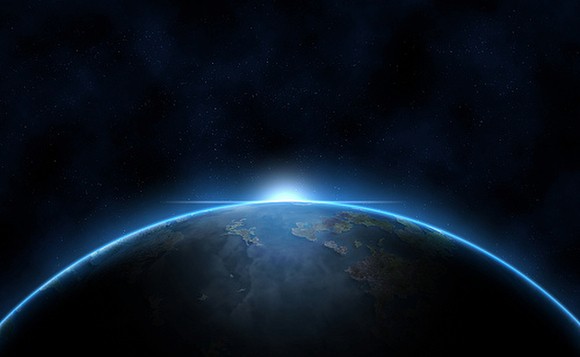Recently, NASA experts have carried out a successful test of a new revolutionary method of space travel, allowing achieving unrealistic high speeds. Experiments first were conducted in a high vacuum, which matches the conditions of outer space.
A team of scientists from the US, China and the UK had worked to develop a warp engine for space launch for more than 15 years, but the prospect of research has been controversial, because their work does not fit into the existing physical theories. However, tests carried out in the laboratories of NASA, found that the new method of the electromagnetic movement in space is still possible to implement.
The technology is based on the use of the electromagnetic actuator. The basic idea - the conversion of electrical energy into thrust without the use of propellant. However, in the realities of classical physics, this is impossible, since the fundamental law of conservation of momentum is violated in this case.
If the theory, put forward by scientists, does have the right to life, then it will be possible to implement in the development of spacecraft in the near future. Warp engines would provide lower cost space missions, gain the speed, give the opportunity to travel, not only the solar system but also beyond it.
Imagine a car that is able to deliver four passengers and their luggage on the moon in about four hours, or several generations’ space travel at a speed that is only one-tenth the speed of light - reaching Alpha Centauri could take less than a century. Warp engines, no doubt, will change the world of space travel. They are the main asset of the American space program now.
Paul March, an engineer working on the creation of warp engines, says:
- My work at Eagleworks (the lab at JSC where the EM drive is being tested) is just a continuation of my work tackling the fundamental problem that has been hindering manned spaceflight from the termination of the Apollo moon program. That being the availability of a robust and cost-effective power and propulsion technology that can break us loose from the shackles of the rocket equation.
According to March, the technology still requires a significant amount of testing that will convince scientists that it really is not the result of an error or a coincidence. At the present time, warp engines are tested at the Johnson Space Center. It is assumed that if such an engine is created, it can be installed on any spacecraft, and the electromagnetic drive will receive energy from a compact nuclear power plant, created specifically for this purpose.
source: cnet.com
A team of scientists from the US, China and the UK had worked to develop a warp engine for space launch for more than 15 years, but the prospect of research has been controversial, because their work does not fit into the existing physical theories. However, tests carried out in the laboratories of NASA, found that the new method of the electromagnetic movement in space is still possible to implement.
The technology is based on the use of the electromagnetic actuator. The basic idea - the conversion of electrical energy into thrust without the use of propellant. However, in the realities of classical physics, this is impossible, since the fundamental law of conservation of momentum is violated in this case.
If the theory, put forward by scientists, does have the right to life, then it will be possible to implement in the development of spacecraft in the near future. Warp engines would provide lower cost space missions, gain the speed, give the opportunity to travel, not only the solar system but also beyond it.
Imagine a car that is able to deliver four passengers and their luggage on the moon in about four hours, or several generations’ space travel at a speed that is only one-tenth the speed of light - reaching Alpha Centauri could take less than a century. Warp engines, no doubt, will change the world of space travel. They are the main asset of the American space program now.
Paul March, an engineer working on the creation of warp engines, says:
- My work at Eagleworks (the lab at JSC where the EM drive is being tested) is just a continuation of my work tackling the fundamental problem that has been hindering manned spaceflight from the termination of the Apollo moon program. That being the availability of a robust and cost-effective power and propulsion technology that can break us loose from the shackles of the rocket equation.
According to March, the technology still requires a significant amount of testing that will convince scientists that it really is not the result of an error or a coincidence. At the present time, warp engines are tested at the Johnson Space Center. It is assumed that if such an engine is created, it can be installed on any spacecraft, and the electromagnetic drive will receive energy from a compact nuclear power plant, created specifically for this purpose.
source: cnet.com



















